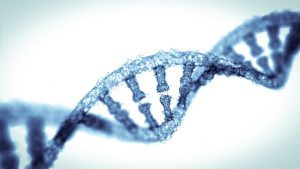New York City Spreads The Wealth And Backlogged Rape Kits Get Tested
Information from the kits generated DNA evidence 'that will help solve crimes for decades to come.'
 When people claim they are raped, they generally go to a hospital where nurses collect evidence to be put into a rape kit. The procedure, done by a Sexual Assault Nurse Examiner, is painstaking and uncomfortable. They collect everything including hair, nails, debris, viscous matter, and stained clothing.
When people claim they are raped, they generally go to a hospital where nurses collect evidence to be put into a rape kit. The procedure, done by a Sexual Assault Nurse Examiner, is painstaking and uncomfortable. They collect everything including hair, nails, debris, viscous matter, and stained clothing.
They examine the subject from head to foot noting any scrapes, cuts, or bruises. Information as small as a paper cut could might be diagramed. They eyeball the person’s genitals and take swabs from any part of his or her body that might carry the perp’s DNA. Being subjected to such testing is particularly unpleasant for someone who’s just been sexually assaulted when all he or she wants to do is go home, change clothes, take a shower, and cry.
Yet in spite of the effort and expertise that goes into making a rape kit, hundreds of thousands of them sit untested in evidence warehouses around the country. Some could hold the answer to who did the crime. Some might be proof that the crime never happened or that the wrong person was accused. But they wait ignored for years, even decades.

Mitigating M&A Cyber Risk: Pre- & Post-Acquisition Due Diligence
Chief among the reasons the kits gather dust is money. It’s estimated that testing a rape kit costs between $1,000 and $1,500 dollars. With limited budgets for law enforcement, not every jurisdiction makes testing rape kits a priority. It’s a women’s thing, for the most part, and in some states, precincts find certain women difficult to believe when they say they’ve been raped. Where the rape is uncorroborated, police may not act. The victim might have a poor memory, be a drug abuser or a sex worker, or have an ongoing relationship with the perpetrator.
In many police departments, rape kits won’t be tested when the alleged victim and the perpetrator know each other. If the testing isn’t necessary to learn the name of the suspect through DNA matching, it will be put in storage. But this is a mistake. Even where the victim and the perp know each other, maybe especially where they know each other, corroboration that sex happened is an important part to prosecuting the case.
That’s why last week when Manhattan District Attorney Cyrus Vance announced the results of an initiative taken by his office and the federal government in 2015 to provide jurisdictions around the country with funds to deal with the rape-kit backlog, I was impressed.
I’m not one to give props to the New York City District Attorney’s Office. In fact, if you’ve followed my column over the last few years, I generally do the opposite. But the idea of using the millions that went to the D.A.’s coffers from settling large-scale, white-collar fraud cases to help states deal with their rape-kit backlog was nothing short of brilliant.
Sponsored

How To Maximize Productivity With Westlaw Precision With CoCounsel


Attention Buyer: Not All Legal AI Models Are Created Equal

The Ethical use of Generative AI


Attention Buyer: Not All Legal AI Models Are Created Equal
According to the report issued last week, the Manhattan D.A. dedicated some $38 million to law enforcement and crime labs in 32 jurisdictions in 20 states, and up to now decreased the backlog of untested rape kits by 55,000. The report went on to say that information from the kits generated DNA evidence “that will help solve crimes for decades to come.”
More than 18,000 DNA profiles were developed and uploaded into a national database, giving police the means to potentially identify a suspect in Wyoming who committed a crime in New York.
According to EndTheBacklog.org, New York City was one of the first places to eliminate its own rape-kit backlog. Back in 2000, Manhattan developed what the D.A.’s office called the “forklift” approach. It mandates testing on all rape kits regardless of the case status (whether someone had been arrested or not), age, or facts of the case. Now, Detroit, Cleveland, and Memphis are following suit.
Without a common national protocol on which kits should take priority, or even standardization of how to conduct DNA testing in general, bringing this issue to the foreground has taken years.
However, with the advent of the #MeToo movement and the enhanced recognition that people alleging sex crimes should not be shunted to the side, the pressure to clear up the backlog has intensified.
Sponsored

Mitigating M&A Cyber Risk: Pre- & Post-Acquisition Due Diligence

New Report - Are Small Firms Achieving Their Legal Tech Goals?
Based on the Manhattan D.A.’s report, the recent rape-kit testing has netted 186 arrests and 64 convictions to date, with more prosecutions underway.
With continued funding and attention to this issue, maybe someday all untested rape kits around the country, thought to number in the hundreds of thousands, will be completed.
Toni Messina has tried over 100 cases and has been practicing criminal law and immigration since 1990. You can follow her on Twitter: @tonitamess.







